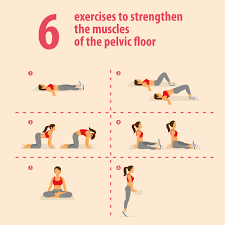A nurse is providing dietary education to a client during the first prenatal visit. Which of the following statements by the client should indicate to the nurse a need for clarification?

"I should not drink alcoholic beverages during my pregnancy."
"I should drink about 2 liters of fluid each day."
"I can have a moderate amount of caffeine daily."
"I should increase my intake of all kinds of fish throughout my pregnancy."
The Correct Answer is D
Choice A: "I should not drink alcoholic beverages during my pregnancy." Correct, as alcohol consumption during pregnancy can lead to fetal alcohol spectrum disorders and other adverse outcomes.
Choice B: "I should drink about 2 liters of fluid each day." Correct, as adequate hydration is essential during pregnancy.
Choice C: "I can have a moderate amount of caffeine daily." Correct, as moderate caffeine consumption is generally considered safe during pregnancy (around 200300 mg per day).
Choice D: During pregnancy, certain fish types can be high in mercury, which can be harmful to the developing fetus. Fish with high mercury levels should be limited or avoided during pregnancy.
Nursing Test Bank
Naxlex Comprehensive Predictor Exams
Related Questions
Correct Answer is A
Explanation
Choice A: Kegel exercises are specifically designed to strengthen the pelvic floor muscles, which play a crucial role during childbirth. Strengthening these muscles can aid in better control during labor and delivery, facilitating stretching and reducing the risk of injury.
Choice B: Kegel exercises do not have a direct impact on preventing constipation during pregnancy. However, they may help improve bowel control and prevent fecal incontinence.
Choice C: While Kegel exercises can improve posture and core strength, their primary benefit lies in strengthening the pelvic muscles, not directly reducing backaches throughout pregnancy.
Choice D: Kegel exercises are not intended to prevent stretch marks on the abdomen. Stretch marks are caused by the stretching of the skin during pregnancy and are not related to pelvic muscle exercises.

Correct Answer is ["B","E"]
Explanation
Choice A: Amniocentesis is not primarily performed to determine the gender of the fetus. The main indication for this procedure is to detect genetic abnormalities or chromosomal disorders.
Choice B: The primary purpose of an amniocentesis is to detect chromosomal abnormalities such as Down syndrome (trisomy 21), trisomy 18, and trisomy 13, among others.
Choice C: Rh incompatibility is assessed through blood tests, not amniocentesis. It involves determining the Rh factor of the mother's blood and monitoring for potential Rh sensitization.
Choice D: Cephalopelvic disproportion refers to a situation where the baby's head is too large or the mother's pelvis is too small to allow for a vaginal delivery. It is not related to amniocentesis.
Choice E: While detecting neural tube defects can be done through amniocentesis, it is not the primary indication for the procedure. Neural tube defects can also be screened for through blood tests and ultrasound examinations. Amniocentesis is more commonly used for chromosomal analysis.
Whether you are a student looking to ace your exams or a practicing nurse seeking to enhance your expertise , our nursing education contents will empower you with the confidence and competence to make a difference in the lives of patients and become a respected leader in the healthcare field.
Visit Naxlex, invest in your future and unlock endless possibilities with our unparalleled nursing education contents today
Report Wrong Answer on the Current Question
Do you disagree with the answer? If yes, what is your expected answer? Explain.
Kindly be descriptive with the issue you are facing.
